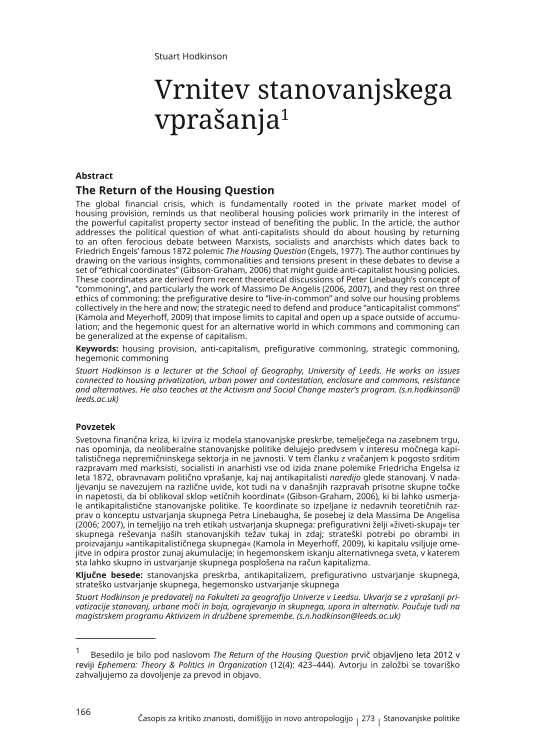The global financial crisis, which is fundamentally rooted in the private market model of housing provision, reminds us that neoliberal housing policies work primarily in the interest of the powerful capitalist property sector instead of benefiting the public. In the article, the author addresses the political question of what anti-capitalists should do about housing by returning to an often ferocious debate between Marxists, socialists and anarchists which dates back to Friedrich Engels’ famous 1872 polemic The Housing Question (Engels, 1977). The author continues by drawing on the various insights, commonalities and tensions present in these debates to devise a set of ‘’ethical coordinates’’ (Gibson-Graham, 2006) that might guide anti-capitalist housing policies. These coordinates are derived from recent theoretical discussions of Peter Linebaugh’s concept of ’’commoning’‘, and particularly the work of Massimo De Angelis (2006, 2007), and they rest on three ethics of commoning: the prefigurative desire to ‘’live-in-common’’ and solve our housing problems collectively in the here and now; the strategic need to defend and produce ‘’anticapitalist commons’’ (Kamola and Meyerhoff, 2009) that impose limits to capital and open up a space outside of accumulation; and the hegemonic quest for an alternative world in which commons and commoning can be generalized at the expense of capitalism.




